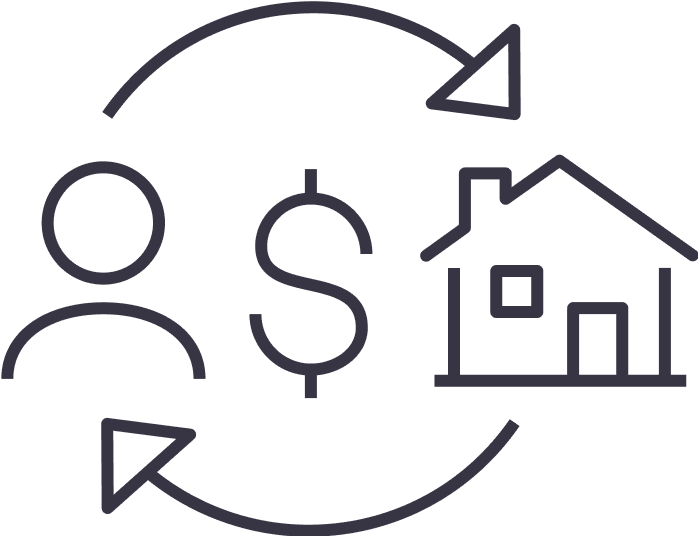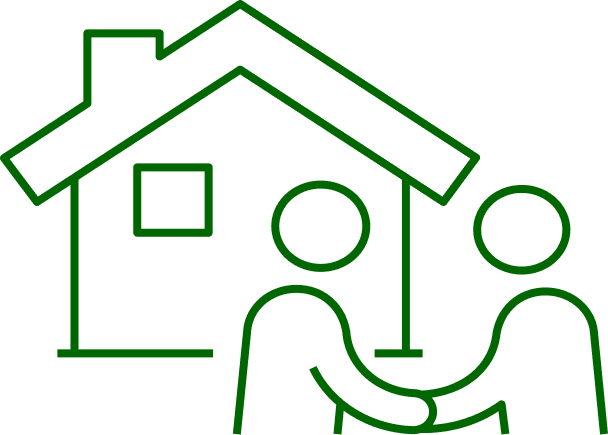Where To Begin the Mortgage Refinancing Process
When you’re ready to refinance, look for competitive interest rates, which could reduce what you’re paying for your home loan. Get started with LowerMyBills.
Common Refinancing Questions
What is mortgage refinancing?
Mortgage refinancing is when a homeowner pays off their original loan with cash from a new one. People refinance mortgages to get a better rate, lower the monthly payment, change the repayment term, adjust the interest rate type on the loan, or use the equity in their home.
Should I sell or refinance my home?
Selling your home allows you to cash out on your equity and move on, while refinancing is about restructuring your finances. Before you decide to refinance or sell, consider several factors:
- Current market conditions and how they affect your property value.
- Current mortgage rates and how they compare to the interest rate on your existing loan.
- Your equity, which is the difference between the value of your home and what you still owe on your mortgage.
- Your credit and other aspects of your financial situation that could affect the loans you qualify for.
- The costs of refinancing your mortgage.
What are the costs of mortgage refinancing?
Mortgage refinancing costs come in the form of closing costs, and can include fees for services such as the home appraisal, the credit check, and underwriting. Closing costs on a refinance average about $5,000, according to Freddie Mac, a government-sponsored enterprise. However, your loan amount and location will greatly influence how much you end up paying.
Another cost of mortgage refinancing to keep in mind is its impact on your credit. For example, closing an old account could lower your credit score, and a hard inquiry resulting from the credit check may hurt your score temporarily.
How often can you refinance a mortgage?
If you want to refinance your mortgage more than once, you can do so — with limits. Conventional loans and those backed by the Federal Housing Administration, Veterans Affairs, and Department of Agriculture may require a waiting period of several months before you can refinance.
Note that refinancing often isn’t advisable if you won’t be able to recoup the costs over time. These include the closing costs on the refinance, and the prepayment penalty on your original mortgage if it has one.
Can you refinance a mortgage with bad credit?
Refinancing a home with poor credit may be difficult, but it’s not impossible. Here are ways to refinance with bad credit. Still, to increase your odds of approval, get a competitive interest rate, and receive better loan terms, it’s best to work on improving your credit score before refinancing.
Featured Articles
![What Are Real Estate Comps and How Do You Find Them?]()
What Are Real Estate Comps and How Do You Find Them?
Rory Arnold7 min read![What To Do If You’re Underwater on Your Mortgage]()
What To Do If You’re Underwater on Your Mortgage
T.J. Porter10 min read![Buying a Second Home: Essential Steps and Tips]()
Buying a Second Home: Essential Steps and Tips
Terence Loose9 min read![How To Resolve Problems on the Final Walk-Through]()
How To Resolve Problems on the Final Walk-Through
Rory Arnold8 min read![Personal Loan vs. Cash-Out Refinance for Home Improvements]()
Personal Loan vs. Cash-Out Refinance for Home Improvements
Andrew Martins11 min read![Making Reverse Mortgage Payments: How It Works]()
Making Reverse Mortgage Payments: How It Works
Brett Holzhauer7 min read







